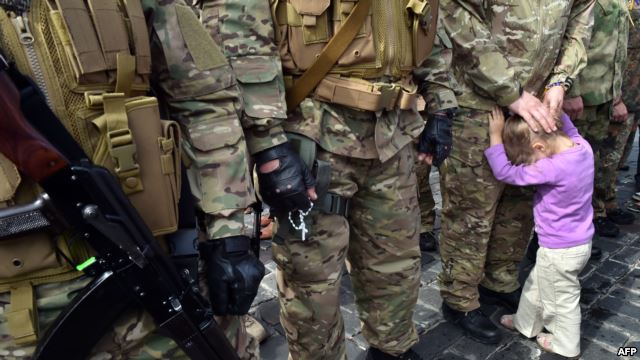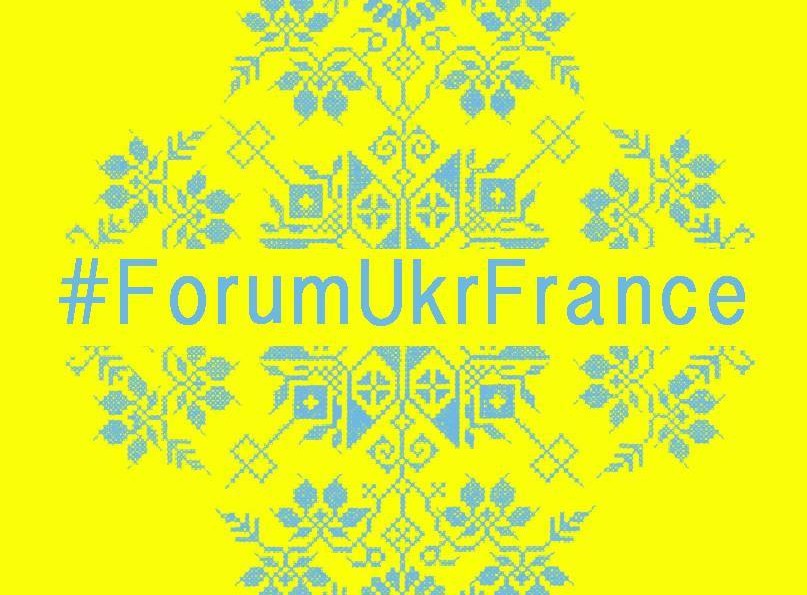The publishers’ forum in Lviv was held during the most difficult time for Ukraine in its 21-year-long history. And despite nine desperate months of fighting for the very existence of Ukrainians, the capital of Halychyna in September was visited by hundreds of writers, publishers and tens of thousands of book lovers from every corner. In terms of numbers, this year’s book fair, despite the war, was not much smaller than the previous ones.
Sometimes the dead and wounded, Putin’s possible further intervention, Western sanctions were completely forgotten, and the people dived into the realm of the book headfirst. However, the unseen atmosphere of the threat from the East sometimes unexpectedly surfaced and returned them to severe reality.
One may see an advertisement for armored doors on a billboard from the marshrutka window that says: No terrorist will pass, or on Lviv oblast television, where one is invited to share their experience, you end up live among guests from the ATO. And even having stumbled into one’s hostel late in the evening, tired and exhausted, at the kitchen table, one meets an Aydar battalion fighter at the kitchen table, who came to Lviv for two weeks’ leave and is now peacefully sipping tea in camouflage, showing you pictures from combat on his laptop.
The war is everywhere: unseen, constant, threatening. It does not allow itself to be forgotten. Even if you stop looking at your newsfeed to throw it out of your subconscious, it will still catch up with you. Even at the presentation of a collective compilation of short stories Ode to Joy, which was supposed to rip us out of the shocking circumstances of today, the authors’ speeches began and ended with war.
When you find out that the person you’re sharing a room with is from occupied Donbas, you come to understand you cannot run from it. What is left is to shift your chair forward, pour a glass (what else?) and listen, listen, listen… Listen to how people would live for 1,5 months in an apartment block without water, and then without electricity or gas. How a shell fell onto the topmost floor, however, it never exploded, fortunately. How the terrorists shot a farmer before the eyes of his family next to his very own house, because he gave food to Ukrainian soldiers. Listen about thousands of militants who are buried in mass graves (the majority of them are not locals). How the city has become empty by two-thirds and even after liberation, one-third will not come back. How Donbas is slowly ‘starting to see,’ as there are less than one-third of pro-Russian shouters left. However, they are still waiting for ‘their people.’
Nobody knows what will happen next. My neighbor doesn’t know either, who in the past months lost 12 kilograms of weight and smokes two packs of cigarettes a day instead of one. “If the mercenaries return, we will have to run,” says he, even though his entire family is strewn across Donbas. However, he doesn't want to live under their government again. He will protect his own home if he has to.
However, having talked enough about war, our further conversation slowly turns towards literature, and the argument here is no less ardent. War time has left its trace on books as well. The positive thing is the fall of book import from Russia by half, taking into account that most books in stores are Russian. Therefore the decision of the Publisher’s Forum not to give space to Russians is quite relevant, as even in Lviv there are more than enough Russian books in stores.
Meanwhile Ukrainian publishers decreased the amount of books and copies in times of bad crisis. For example, there are almost no new children’s books. However, despite the decreased volume, both the Art Palace and the square in front of it was crowded during all four days. The people bought books, even though they became more expensive (some very significantly).
Which means that Ukrainians are not only thinking about war, but about peace as well, which will definitely come after. Not panic and bite our elbows, but live in full emotion, grow intellectually and develop, construct ourselves and our own culture, become self-sufficient: this is the best response to Mordor that is coming from Moscow.



